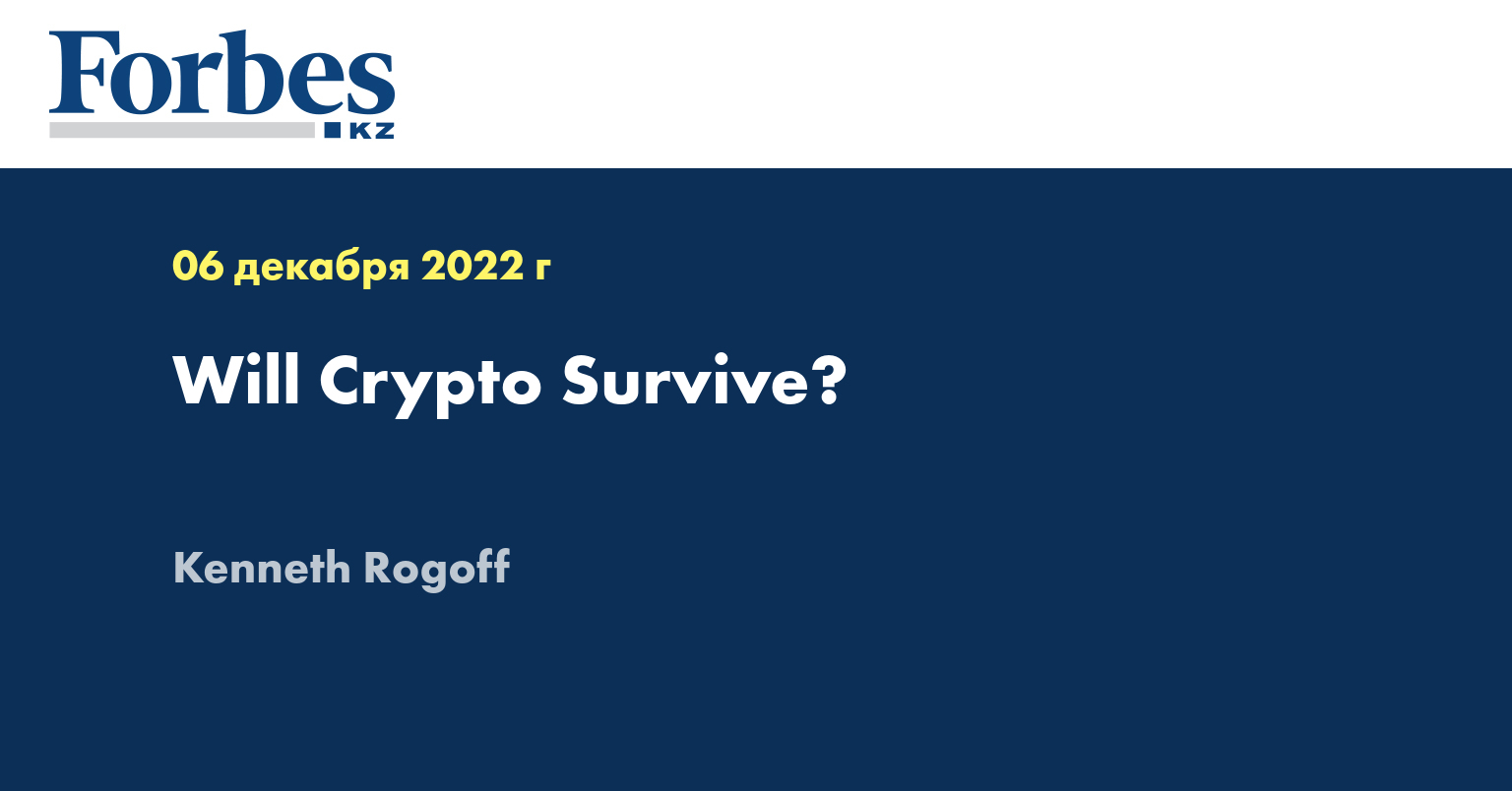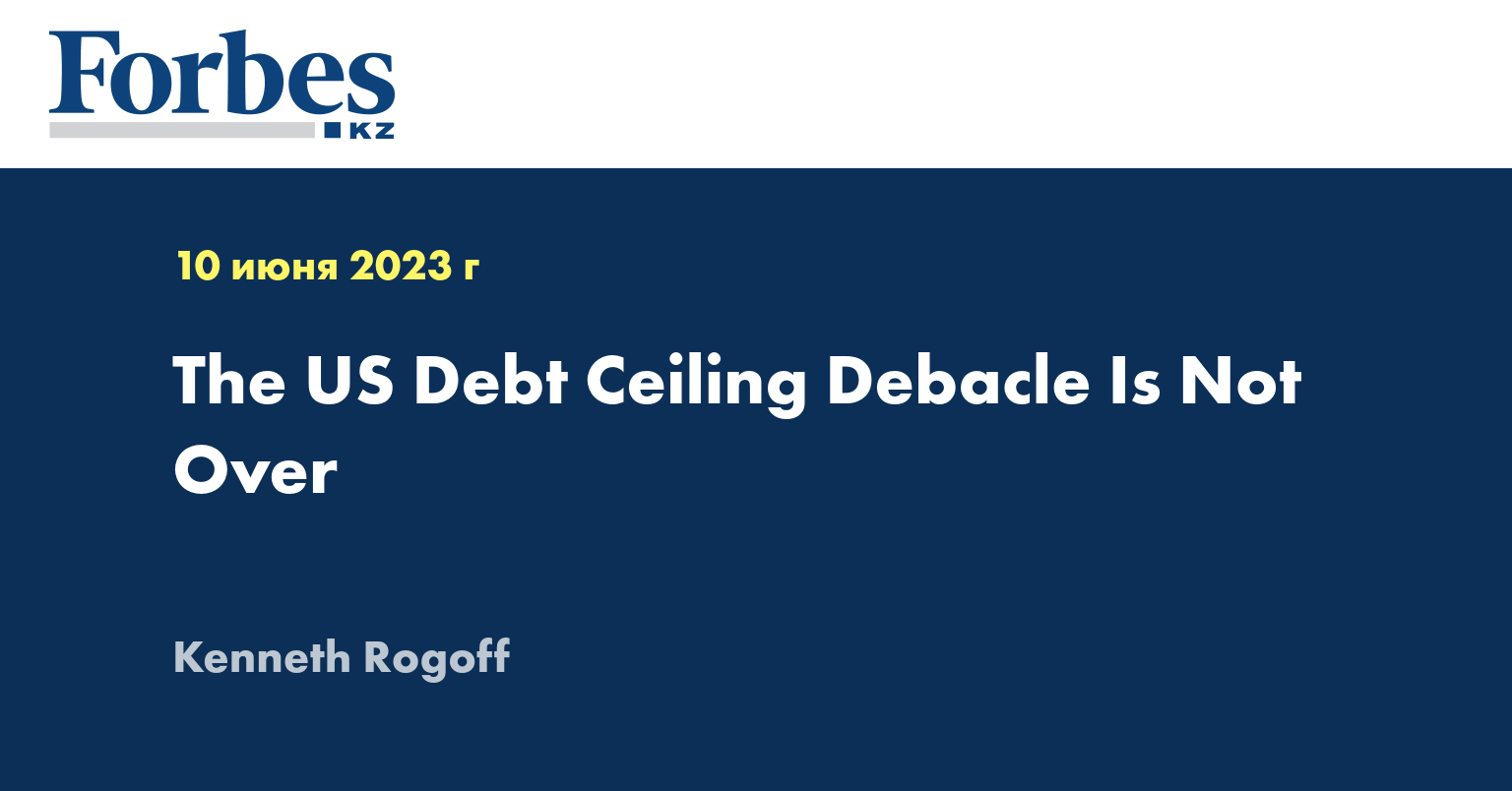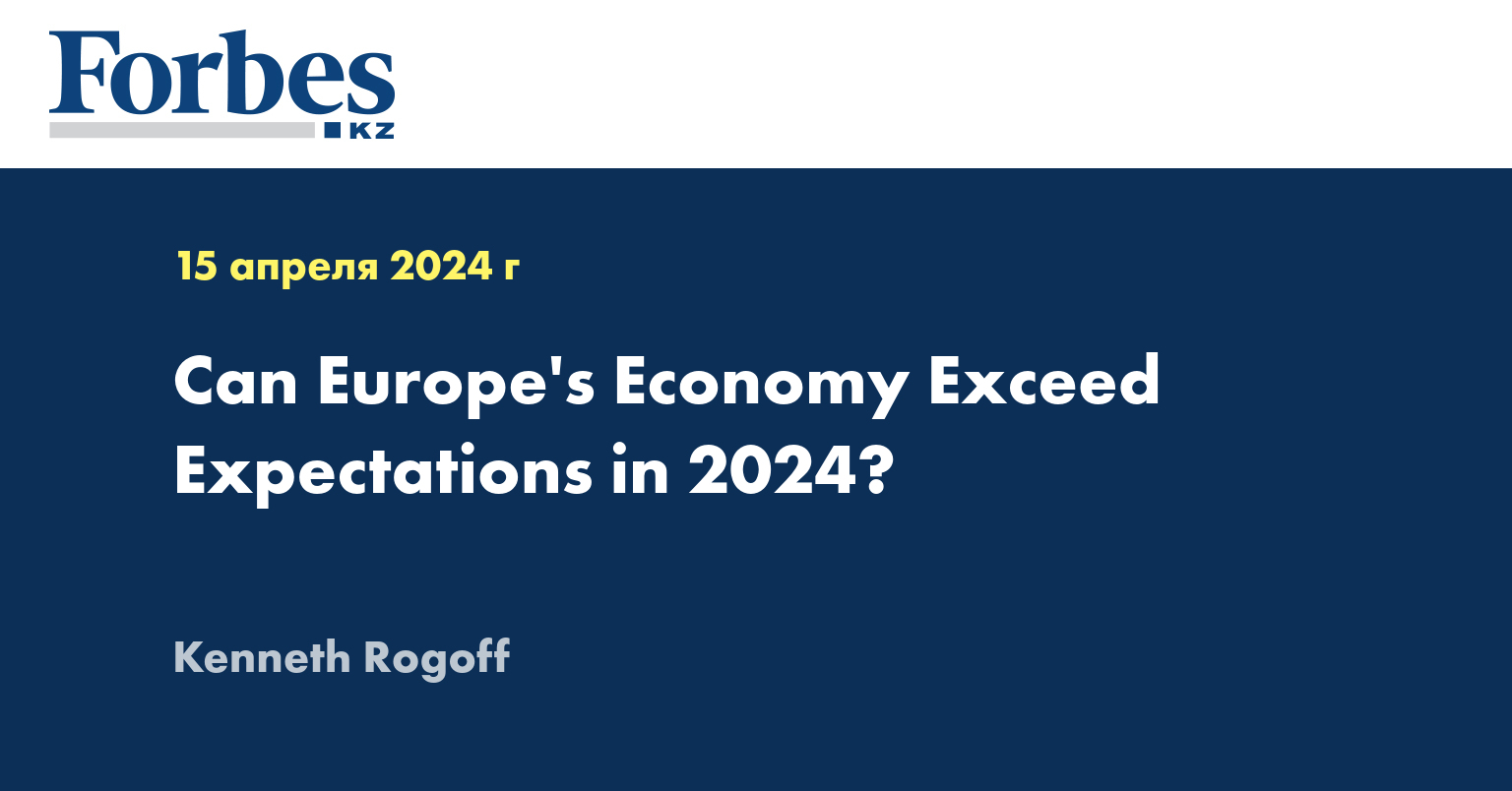The chess world is reeling from an accusation of cheating that has generated headlines around the world, even drawing a response from Elon Musk
21 октября 2022
4 мин.
81322
CAMBRIDGE – Give US President Joe Biden, a Democrat, credit for reappointing Jerome Powell, a Republican, to a second four-year term as chair of the United States Federal Reserve
17 декабря 2021
5 мин.
9746
CAMBRIDGE – What is remarkable about the increase in nationalist sentiment across the developed world in recent years is that it is occurring at a time when many of today’s most pressing challenges, including climate change and the COVID-19 pandemic, are fundamentally global problems demanding global solutions
14 мая 2021
5 мин.
9076
CAMBRIDGE – Massive fiscal and monetary stimulus programs in the United States and other advanced economies are fueling a raging debate about whether higher inflation could be just around the corner. Ten-year US Treasury yields and mortgage rates are already climbing in anticipation that the US Federal Reserve – the de facto global central bank – will be forced to hike rates, potentially bursting asset-price bubbles around the world. But while markets are probably overstating short-term inflation risks for 2021, they do not yet fully appreciate the longer-term dangers.
05 марта 2021
4 мин.
7343
CAMBRIDGE – In the brilliant and hugely successful 2020 Netflix miniseries The Queen’s Gambit, the chess prodigy Beth Harmon (played by Anya Taylor-Joy) polishes off her male opponents with style and speed. Because the story is set in the 1950s and 1960s, there are no cell phones, social media, or computer chess programs. Life was slower then, as it again seems to be nowadays during the pandemic
11 января 2021
5 мин.
7821
CAMBRIDGE – Encouraging news about more effective anti-viral treatments and promising vaccines is fueling cautious optimism that rich countries, at least, could tame the COVID-19 pandemic by the end of 2021
14 декабря 2020
5 мин.
9921
CAMBRIDGE – With alternative assets such as gold and Bitcoin thriving in the pandemic, some top economists are predicting a sharp fall in the US dollar
13 ноября 2020
5 мин.
7348
The chess world is reeling from an accusation of cheating that has generated headlines around the world, even drawing a response from Elon Musk
21 октября 2022
4 мин.
81322
The epic collapse of wunderkind Sam Bankman-Fried’s $32 billion crypto empire, FTX, looks set to go down as one of the great financial debacles of all time
06 декабря 2022
4 мин.
65935
The tentative deal that was just struck to raise the United States’ debt ceiling won’t make the problem go away
10 июня 2023
4 мин.
44249
It is now past time to revisit the widely prevailing “free lunch” view of government debt
12 декабря 2023
5 мин.
43794
Over the past few years, China has significantly expanded its economic footprint in South America, overtaking the United States as the continent’s largest trading partner
17 мая 2023
5 мин.
43479
Who should pay for Ukraine’s postwar reconstruction?
27 августа 2023
4 мин.
40217
The global economy was full of surprises in 2023
10 января 2024
5 мин.
34452
A month into 2024, the consensus forecast for the global economy remains cautiously optimistic, with most central banks and analysts projecting either a soft landing or potentially no landing at all
02 февраля 2024
5 мин.
31825
After 15 years of economic upheavals, from the European debt crisis to the COVID-19 pandemic and Russia’s invasion of Ukraine, the European economy appears set to underperform in 2024. But are appearances deceiving?
15 апреля 2024
4 мин.
20711
LONDON – Will the next recession be worse than you think? With the major central banks having little space for further interest-rate cuts, might the next cyclical downturn become a crash? In theory, fiscal policy can go far in filling the void. The past decade has seen a rise in fiscal evangelism among many economists and policymakers, and it is indeed likely that fiscal fine-tuning will be widely tested in the next downturn. Are they right?
10 февраля 2020
5 мин.
16780
Who should pay for Ukraine’s postwar reconstruction?
27 августа 2023
4 мин.
40217
In the surprise hit movie “Crazy Rich Asians” (based on a 2013 Kevin Kwan novel), a New York University economics professor (Rachel), travels with her boyfriend to Singapore to meet his family. There, she learns, apparently for the first time, that her significant other (Nick) is heir to one of Asia’s largest fortunes and has a mother intent on making sure her son does not marry a commoner, Asian-American or not
24 октября 2018
5 мин.
8611
LONDON – Though US President Donald Trump tends to grab most of the headlines, he is hardly a global exception. Populist autocrats have enjoyed a breathtaking rise to power in countries around the world, and nowhere is the trend more pronounced than in Latin America following the elections of Mexico’s leftist president, Andrés Manuel López Obrador (AMLO), and Brazil’s right-wing president, Jair Bolsonaro. Americans are right to complain about Trump’s autocratic tendencies, but, as former Chilean Finance Minister Andrés Velasco would remind them, Trump is a mere apprentice compared to Latin America’s populists
10 июня 2019
5 мин.
8422
A month into 2024, the consensus forecast for the global economy remains cautiously optimistic, with most central banks and analysts projecting either a soft landing or potentially no landing at all
02 февраля 2024
5 мин.
31825
With so much angst about artificial intelligence and the future of work, the recent world chess championship in London offers some hope
11 декабря 2018
5 мин.
8427
If you ask most central bankers around the world what their plan is for dealing with the next normal-size recession, you would be surprised how many (at least in advanced economies) say “fiscal policy.” Given the high odds of a recession over the next two years – around 40% in the United States, for example – monetary policymakers who think fiscal policy alone will save the day are setting themselves up for a rude awakening
17 января 2019
4 мин.
11178
CAMBRIDGE – Displaying a degree of courage and clarity that is difficult to overstate, US senator and presidential candidate Elizabeth Warren has taken on Big Tech, including Facebook, Google, Amazon, and Apple. Warren’s proposals amount to a total rethink of the United States’ exceptionally permissive merger and acquisition policy over the past four decades. Indeed, Big Tech is only the poster child for a significant increase in monopoly and oligopoly power across a broad swath of the American economy. Although the best approach is still far from clear, I could not agree more that something needs to done, especially when it comes to Big Tech’s ability to buy out potential competitors and use their platform dominance to move into other lines of business
09 апреля 2019
4 мин.
11003
The global economy was full of surprises in 2023
10 января 2024
5 мин.
34452
CAMBRIDGE – Why are stock-market valuations soaring when the real economy remains so fragile? One factor has become increasingly clear: The crisis has disproportionately affected small businesses and low-income service workers. They are essential for the real economy, but not so much for equity markets. True, there are other explanations for today’s lofty valuations, but each has its limitations
12 октября 2020
5 мин.
5361
A decade on from the 2008 global financial crisis, policymakers constantly assure us that the system is much safer today. The giant banks at the core of the meltdown have scaled back their risky bets, and everyone – investors, consumers, and central bankers – is still on high alert. Regulators have worked hard to ensure greater transparency and accountability in the banking industry. But are we really all that safe?
08 февраля 2019
4 мин.
9903
У автора нет статей, опубликованных в журнале Forbes Kazakhstan
Загрузка...





























